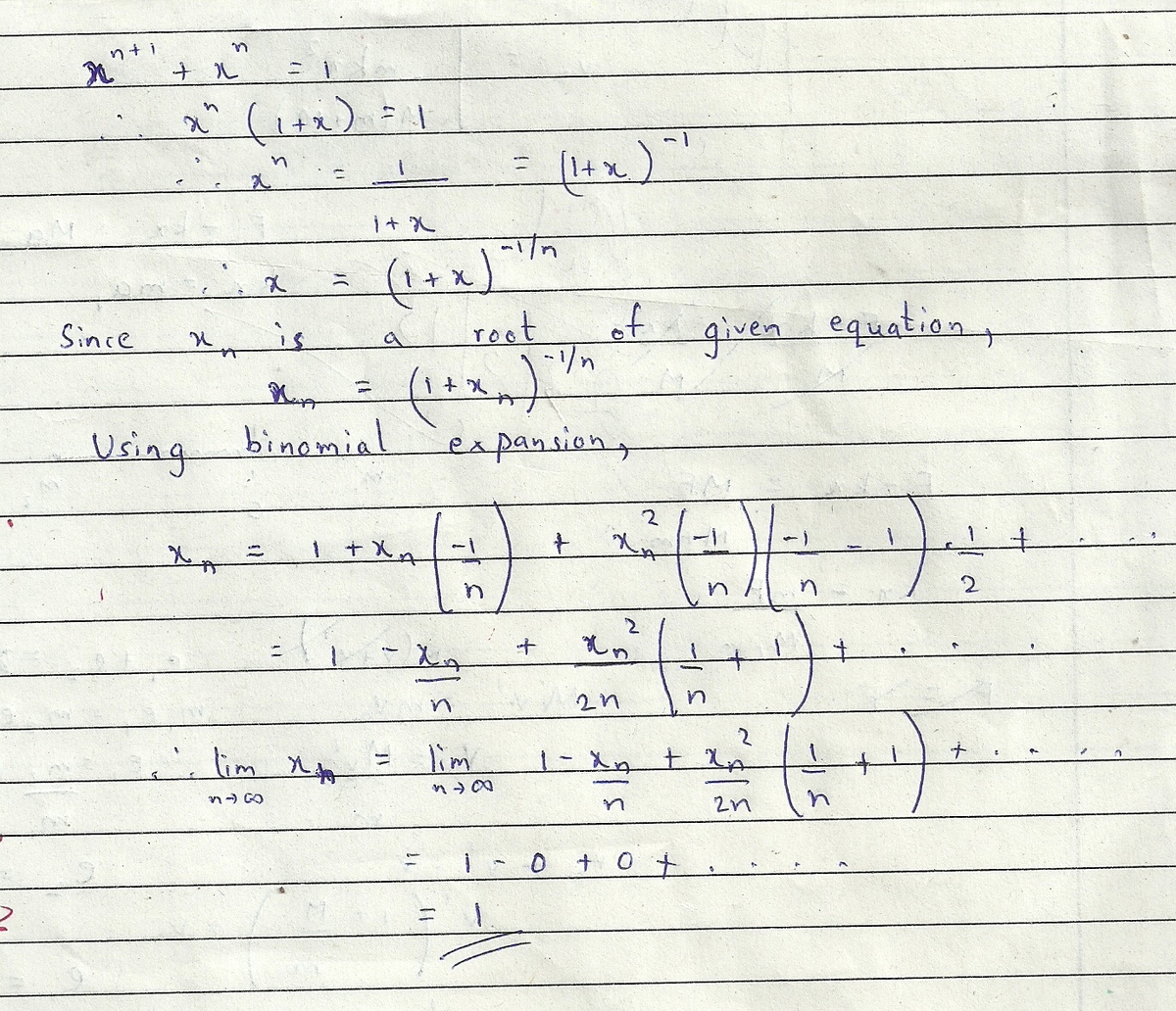An interesting sequence
x n + x n + 1 = 1
For natural number n , let x n denote the root of the equation above. Evaluate n → ∞ lim x n .
The answer is 1.
This section requires Javascript.
You are seeing this because something didn't load right. We suggest you, (a) try
refreshing the page, (b) enabling javascript if it is disabled on your browser and,
finally, (c)
loading the
non-javascript version of this page
. We're sorry about the hassle.
2 solutions
 You can rearrange this equation and write it as x = (1/(1+x))^(-1/n). Now applying binomial expansion, you can say that x = 1 - (x/n) + ............... Now if n tends to infinity, then the value of the limit comes out to be 1.
You can rearrange this equation and write it as x = (1/(1+x))^(-1/n). Now applying binomial expansion, you can say that x = 1 - (x/n) + ............... Now if n tends to infinity, then the value of the limit comes out to be 1.
We can modify the LHS by GP formula = x n ∗ ( x 2 − 1 ) / ( x − 1 )
The equation thus becomes x n + 2 − x n − x + 1 = 0 where x is not 1
As the n blows up to infinity, the root of the equation tends to 1
=> limit is 1
Moderator note:
Why is this line true?
As the n blows up to infinity, the root of the equation tends to 1
I have a graphical argument to justify this
Consider the graph of 1 + x 1 − x n
As n blows up to infinity, the f'(x) at x=1 tends to infinity and x axis cut tends to 1. Thus the root tends to 1